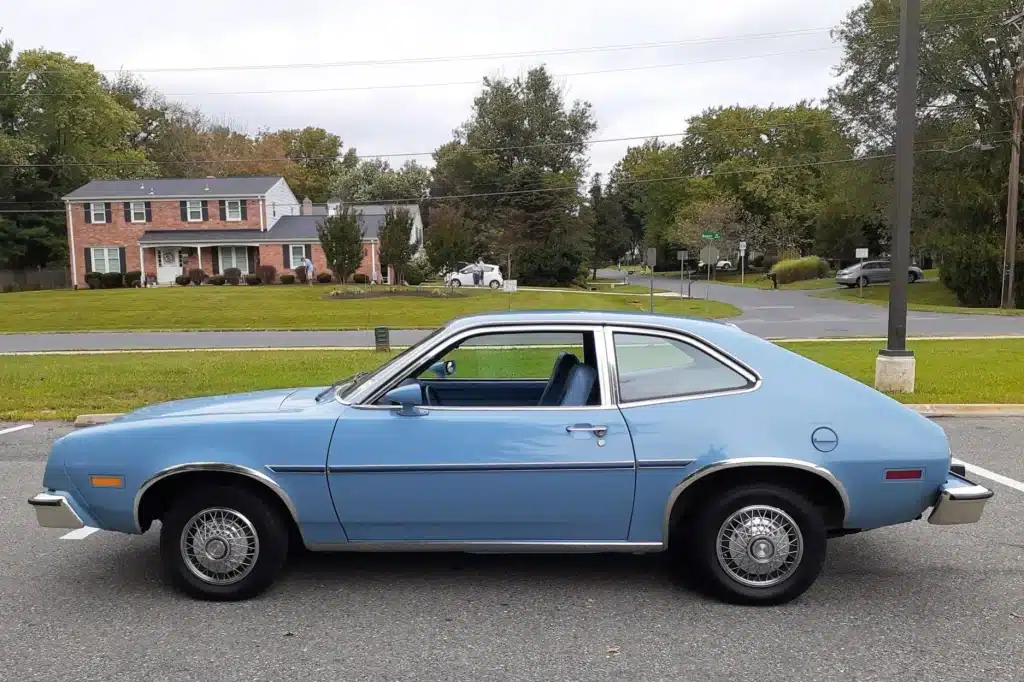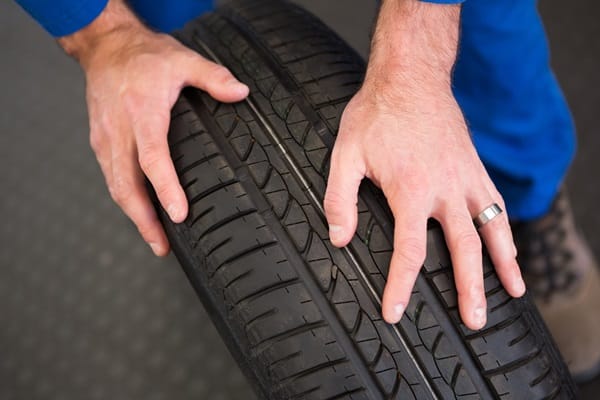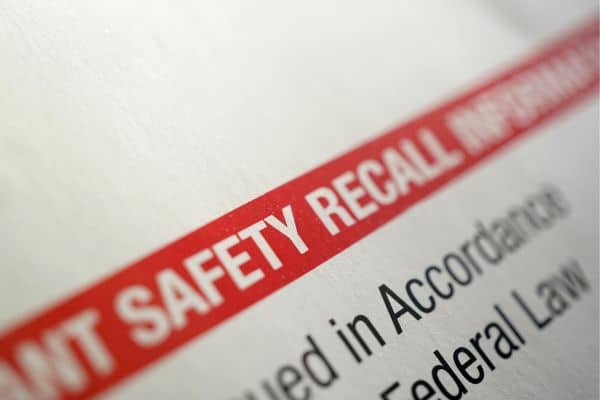Car recalls are a common occurrence in the automotive industry and a critical action taken to address safety concerns or other issues that may affect the performance and reliability of a vehicle. They reflect both the challenges of mass-producing complex machinery and the commitment to consumer safety. This post will explore the biggest car recalls ever recorded, providing background information on the issues that led to the recalls and the implications they had on consumers, manufacturers, and the industry as a whole.
Contents
- 1 The Concept Of Car Recalls
- 2 The Importance Of Car Recalls
- 3 The Biggest Car Recalls In History
- 4 Ford Pinto Recall In 1978
- 5 Takata Airbag Recall In 2013
- 6 General Motors Ignition Switch Recall In 2014
- 7 Volkswagen Diesel Emissions Scandal In 2015
- 8 Toyota Unintended Acceleration Recall In 2009-2011
- 9 Ford Firestone Tire Recall In 2000
- 10 Lessons Learned From The Biggest Car Recalls
- 11 These Car Recalls Have Provided Valuable Insights!
The Concept Of Car Recalls

A car recall is a request made by a manufacturer to return a particular model of a vehicle that has been found to have safety-related defects or does not comply with federal safety standards. Manufacturers are legally obligated to either repair the vehicle, replace it, or refund the purchase price if a defect is identified. This process is typically free for the car owner, with costs absorbed by the manufacturer.
Car recalls are usually prompted by reports received from car owners or through routine testing and inspection procedures by the manufacturer or the National Highway Traffic Safety Administration (NHTSA). Once a potential defect is identified, an investigation ensues to determine the severity and scale of the issue. If the defect poses a safety risk, a recall is issued. It’s important to note that recalls also apply to vehicle equipment like tires and child car seats.
The Importance Of Car Recalls

Car recalls play a significant role in maintaining public safety on the roads. They allow manufacturers to correct defects that may pose a risk to drivers, passengers, and other road users. When conducted promptly and efficiently, car recalls help to prevent accidents, injuries, and even deaths that might otherwise occur due to vehicle malfunctions.
However, the impact of car recalls extends beyond safety. For manufacturers, a recall is a serious financial undertaking, often resulting in substantial direct costs for repairs and replacements, not to mention indirect costs such as damage to brand reputation and loss of consumer trust. As such, the ability to manage and execute a recall effectively is critical for a manufacturer’s success and survival in the competitive automotive market.
The Biggest Car Recalls In History
While recalls happen all the time, some have become infamous for their scale and scope. Below you will get an in-depth look at some of the most prominent car recalls in history and the aftermath of these events:
Ford Pinto Recall In 1978

In 1978, Ford Motor Company issued one of the most notorious car recalls in history involving the Ford Pinto. The model was found to have a design flaw in the fuel system that could cause the car to burst into flames in a rear-end collision. This issue led to a number of fatal accidents before the problem was acknowledged and a recall was announced.
The Pinto recall had far-reaching consequences for Ford. The manufacturer faced a significant financial burden due to the recall process and subsequent lawsuits. But perhaps more damaging was the blow to the company’s reputation. The public perception of Ford suffered greatly due to the perceived negligence and lack of regard for customer safety, casting a shadow over the brand that took years to dissipate.
Takata Airbag Recall In 2013

The recall of Takata airbags, which began in 2013, is considered the largest auto recall in history, affecting millions of vehicles worldwide. The issue stemmed from faulty airbag inflators that could explode when deployed, firing shrapnel into the vehicle. The defect was linked to numerous injuries and deaths, prompting a massive recall spanning several car manufacturers that used Takata airbags.
The recall had serious implications for both Takata and the wider automotive industry. Takata was hit with hefty fines and faced numerous lawsuits, eventually leading to the company’s bankruptcy in 2017. The extensive nature of the recall also led to a shortage of replacement parts, resulting in long wait times for affected consumers. The Takata recall highlighted the risks inherent in global supply chains and the significant impact that one faulty component can have on the entire industry.
General Motors Ignition Switch Recall In 2014

General Motors (GM) came under scrutiny in 2014 due to a defect in the ignition switch of many of its models. The faulty switches could inadvertently turn to the “off” position while the vehicle was in motion, disabling essential features such as power steering, brakes, and airbags. The defect was linked to several deaths and injuries before a recall was issued.
The ignition switch recall was a substantial blow to GM, financially and reputationally. The company was criticized for its handling of the defect, which was reportedly known internally for years before the recall was initiated. GM was fined by regulators and faced a slew of lawsuits from affected customers. The recall and its fallout were a stark reminder of the essential trust between auto manufacturers and consumers and how quickly that trust can be eroded when safety issues are not promptly addressed.
Volkswagen Diesel Emissions Scandal In 2015

In 2015, Volkswagen was embroiled in a scandal known as “Dieselgate,” where the company was found to have installed software in its diesel vehicles to cheat emissions tests. The software manipulated emissions outputs during testing conditions, allowing vehicles to meet environmental standards. However, in normal driving conditions, these vehicles emitted pollutants significantly above legal limits. The scandal led to the recall of millions of cars globally.
The implications of the scandal were severe for Volkswagen. The company was hit with billions in fines worldwide, and its reputation took a substantial hit. The scandal also had broader impacts on the automotive industry, increasing scrutiny of emissions testing procedures and accelerating the shift towards electric and hybrid vehicles. “Dieselgate” demonstrated the potential environmental implications of recalls and the increasing importance of environmental compliance in the automotive industry.
Toyota Unintended Acceleration Recall In 2009-2011

Between 2009 and 2011, Toyota was forced to recall millions of vehicles due to an issue that became known as “unintended acceleration”. The problem, which was linked to floor mats and a sticky accelerator pedal, could cause vehicles to accelerate uncontrollably. The issue was linked to a number of accidents, prompting a massive recall.
The recall significantly impacted Toyota’s reputation for quality and reliability. The company also faced a hefty fine for failing to notify the regulators promptly about the issue. In the aftermath of the recall, Toyota made changes to their quality control and safety measures, and the incident prompted automakers industry-wide to pay closer attention to potential safety defects. This case underscores the importance of timely reporting and handling of safety issues in maintaining consumer trust and brand reputation.
Ford Firestone Tire Recall In 2000

The Ford Firestone Tire recall of 2000 was another significant event in the history of automotive recalls. Ford Explorers equipped with Firestone tires were found to have a higher tendency for tire tread separation, which could result in a loss of vehicle control and rollover accidents. Numerous accidents, injuries, and fatalities were attributed to this defect, leading to a massive recall of both vehicles and tires.
The recall created a public rift between Ford and Firestone, with both companies blaming each other for the issues. The financial and reputational costs were significant for both, and the recall eventually led to the end of a century-long business relationship between Ford and Firestone. This recall highlighted the responsibility of car manufacturers not only for the vehicles they produce but also for the third-party components they choose to use.
Lessons Learned From The Biggest Car Recalls

The car recalls discussed above have brought valuable lessons to the fore for car manufacturers and regulators. One common theme is the significant role that prompt and transparent communication plays in managing recall scenarios effectively. Companies that were slow to respond or lacked transparency in their communications often faced greater reputational damage and financial loss.
Moreover, these recalls have highlighted the importance of robust quality assurance and testing procedures. The vast majority of these recalls resulted from defects that could potentially have been identified and addressed before the vehicles reached customers. This underlines the importance of investing in quality and safety from the earliest stages of vehicle design and manufacturing.
These Car Recalls Have Provided Valuable Insights!
Understanding the biggest car recalls in history provides valuable insights into the importance of safety, transparency, and responsibility in the automotive industry. These events have influenced not only the companies directly involved but also the wider industry, prompting improvements in vehicle safety standards, quality assurance processes, and recall management procedures. For consumers, these recalls highlight the importance of being vigilant about potential safety issues and responding promptly to recall notices.
